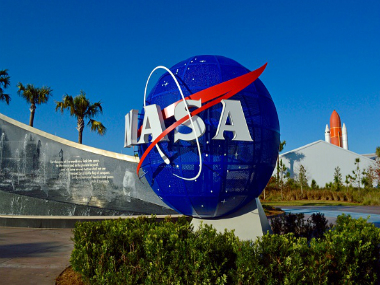As collection of space data increases, NASA is exploring the infusion of Artificial Intelligence (AI) into space communications networks to meet demand and increase efficiency. [caption id=“attachment_4185337” align=“alignleft” width=“380”] Nasa.[/caption] Software-defined radios like cognitive radio use AI to employ underutilised portions of the electromagnetic spectrum without human intervention. The Federal Communications Commission (FCC) permits a cognitive radio to use the frequency while unused by its primary user until the user becomes active again. “Modern space communications systems use complex software to support science and exploration missions. By applying AI and machine learning, satellites control these systems seamlessly, making real-time decisions without awaiting instruction,” Janette C. Briones, Principal Investigator at NASA’s Glenn Research Centre in Cleveland, Ohio, said in a statement on Saturday. The recent development of cognitive technologies is a new thrust in the architecture of communications systems. “We envision these technologies will make our communications networks more efficient and resilient for missions exploring the depths of space. By integrating AI and cognitive radios into our networks, we will increase the efficiency, autonomy and reliability of space communications systems,” added Briones. For NASA, the space environment presents unique challenges that cognitive radio could mitigate. Space weather, electromagnetic radiation emitted by the Sun and other celestial bodies, fills space with noise that can interrupt certain frequencies. The Space Communications and Navigation (SCaN) Testbed aboard the International Space Station (ISS) provides engineers and researchers with tools to test cognitive radio in the space environment. The testbed houses three software-defined radios in addition to a variety of antennas and apparatus that can be configured from the ground or other spacecraft. “The testbed keeps us honest about the environment in orbit. While it can be simulated on the ground, there is an element of unpredictability to space. The testbed provides this environment, a setting that requires the resiliency of technology advancements like cognitive radio,” explained Dave Chelmins, Project Manager for the SCaN Testbed and cognitive communications. In the future, a NASA cognitive radio could even learn to shut itself down temporarily to mitigate radiation damage during severe space weather events. Adaptive radio software could circumvent the harmful effects of space weather, increasing science and exploration data returns. A cognitive radio network could also suggest alternate data paths to the ground, said NASA. The cognitive radio’s AI could also allocate ground station downlinks just hours in advance, as opposed to weeks, leading to more efficient scheduling. Additionally, cognitive radio may make communications network operations more efficient by decreasing the need for human intervention. An intelligent radio could adapt to new electromagnetic landscapes without human help and predict common operational settings for different environments, automating time-consuming processes previously handled by humans.
For NASA, the space environment presents unique challenges that cognitive radio could mitigate.
Advertisement
End of Article


)
)
)
)
)
)
)
)
)



